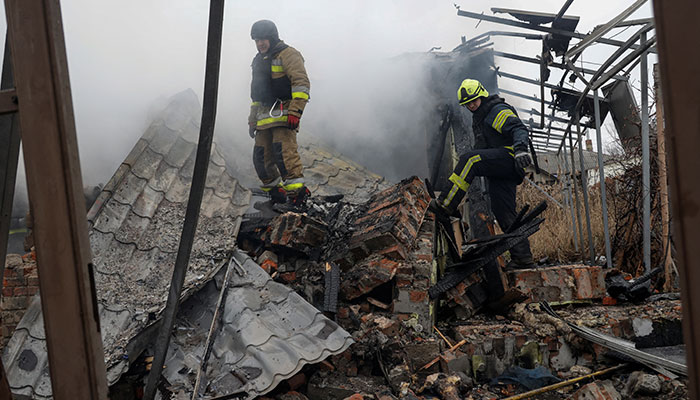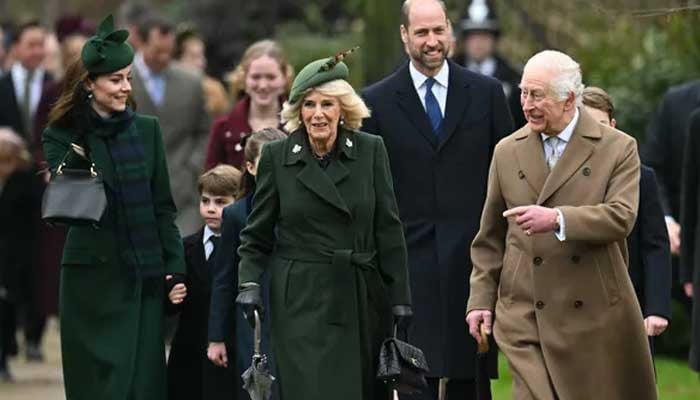Business
SOCIETY: THE DAWN OF A NEW CAFÉ
字号+ Author:Smart News Source:US 2025-01-13 07:34:10 I want to comment(0)
At the recently reopened CAFÉ Dawn in Quetta, the first thing one spots is the gramophone on the counter as one enters. The owner, Abdul Qadir Rind, is busy entertaining visitors when he spots me. After a brief exchange of greetings, we find ourselves a table just as the late Lata Mangeshkar’s classic ‘Jiya beqarar hai’ starts playing on the gramophone. As I look around to take in the décor, I see elements of local culture, including a corner wall adorned with hunting trophies and the traditional Baloch shotguns known as dhadri, with their deep curving grips. In the other corner, there is a bookshelf, with works of history and literature, including those of Mirza Ghalib, Jaun Elia and Atta Shad Baloch. There is also a statue of Ghalib on the main desk of the counter, as well as artefacts gifted by the Iranian culture centre in Quetta. Around the café, small huddles of patrons discuss arts, literature, politics, music and more, in a cosy setting while sipping on the beverage of their choice — mostly tea but also coffee and kahweh [black tea]. A ‘Freedom Wall’, put up by Qadir’s son Saboor, allows visitors to leave their feedback on colourful sticky notes, which adds to the immersive experience. The space, Qadir tells Eos, was designed by Sadia Rathore, an award-winning young artist from Balochistan. A retired government servant’s attempt to create a literary environment for locals in Quetta results in the revival of a once-popular café… Qadir, wearing a waistcoat over his kurta shalwar, takes Eos back in time when Quetta was a beautiful little town, dubbed “Little London” by Britishers. But the horrific earthquake of 1935 reduced the city to rubble. The earthquake also greatly damaged the many cafés that lined the famous Jinnah Road — known as Bruce Road at that time. But the culture remained and soon cafés reappeared on the popular strip. Café Dawn was one of those cafés, believed to have been founded by a member of Quetta’s small Baha’i community. It quickly became popular among nationalist leaders, journalists, writers, activists and literary figures, Rind tells Eos. Later on, as the culture of cafés started to decline across Bruce Road and elsewhere in Quetta, Café Dawn also closed its doors, sometime in the 1980s. “There are very few places in Quetta where people can gather to discuss literature and experience culture,” Qadir tells Eos. “This is why we have revived Café Dawn,” he adds. A father of six, Qadir retired from the provincial agriculture department in January last year. Since his retirement, he has been writing letters to the prime minister, president and the Senate chairman among others, asking for land for such a café. With his letters failing to elicit any response, Qadir decided to set up the café using funds from his superannuation. “I know it’s not a commercially viable decision, but I don’t regret it,” Qadir asserts. “I know the benefits of growing up in a literary environment, surrounded by books and being immersed in engaging discussions, and I want others to have that as well,” he continues. The café opened its doors last New Year’s Eve and is located on Sabzal Road — also called the CPEC Road, after the China-Pakistan Economic Corridor project. “It is a small attempt on my part to nurture and nourish our valley’s liberal, progressive and literary outlook,” says a beaming Qadir. Engineer Jameel Ahmad Kurd, dressed in a kurta shalwar and waistcoat like Qadir, is a regular at the café. Kurd says he has around 600 books in his personal library and he is currently working on a travelogue regarding his journeys across Balochistan. On most mornings, he can be found reading a book in a corner of the café. He is also a regular in the evenings, joining his friends for intense discussions. “I come here because it has a literary environment,” Kurd tells Eos. “Also, I can bring my family, too, as women and girls also come here.” Kurd is currently reading South African leader Nelson Mandela’s autobiography, Long Walk To Freedom. He also reads Baloch authors and writers as well as books on psychology. Like Kurd, Fida Rahim Baloch, who is the deputy director in the provincial culture department, comes to the café to read or to have discussions with his friends. “I come here due to the environment, which is literary, clean and no one raises their voice,” he tells Eos. “If I am alone here, I pick up a book from the shelf and read it.” The café is also popular among Baloch literary figures and, as if on cue, writers Waheed Zaheer and Afzal Murad arrive there. The two friends are also regulars at the café, often involved in long debates with friends. Zaheer tells Eos that he was worried that there was no place in Quetta where he could spend time with like-minded people. “But since Café Dawn opened its doors, I don’t have to worry about that,” he says. “To tell you the truth, there is no such place in the city where we could sit and have a discussion.” In the past, continues Zaheer, there were many such options on Bruce Road. “There was Café Regal, Café Farah and several others, where writers, politicians, lawyers, journalists and literary people would sit,” he says while reminiscing. “But they all vanished as café culture declined in Quetta.” As I get up to leave, Qadir Rind hands over two Urdu books as a gift. Ever the prescient observer, Waheed Zaheer quickly shoots back with a smile. “How can cafés survive if the owner gifts two books over every cup of tea?”
1.This site adheres to industry standards, and any reposted articles will clearly indicate the author and source;
 Related Articles
Related Articles-
Suspect wanted by India arrested on gun charges in Canada: report
2025-01-13 07:25
-
Hamas says US ‘directly responsible’ for Gaza conflict after UN veto
2025-01-13 07:01
-
Intruder ‘derails’ Pakistan embassy’s town hall
2025-01-13 06:11
-
Wounded vulture rescued
2025-01-13 06:02
 User Reviews
User Reviews Recommended Reads
Recommended Reads Hot Information
Hot Information- ICC issues arrest warrants for Israeli PM Netanyahu, ex-defence minister Gallant
- Children’s population in Pakistan may touch 129 million by 2050: Unicef
- Section 144 imposed in Islamabad for 2 months as PTI gears up for Nov 24 power show
- Robbery leaves two siblings injured
- Apex Committee approves comprehensive military operation against terrorist outfits in Balochistan
- CII chief says VPNs ‘un-Islamic’ if used against national security, for character assassination
- Netanyahu says Israel offering $5m reward for each Gaza hostage
- Israeli helicopters fire on homes in central Gaza
- Car lifters ‘kill’ taxi driver in Hazro
 Abont US
Abont US
Follow our WhatasApp account to stay updated with the latest exciting content













